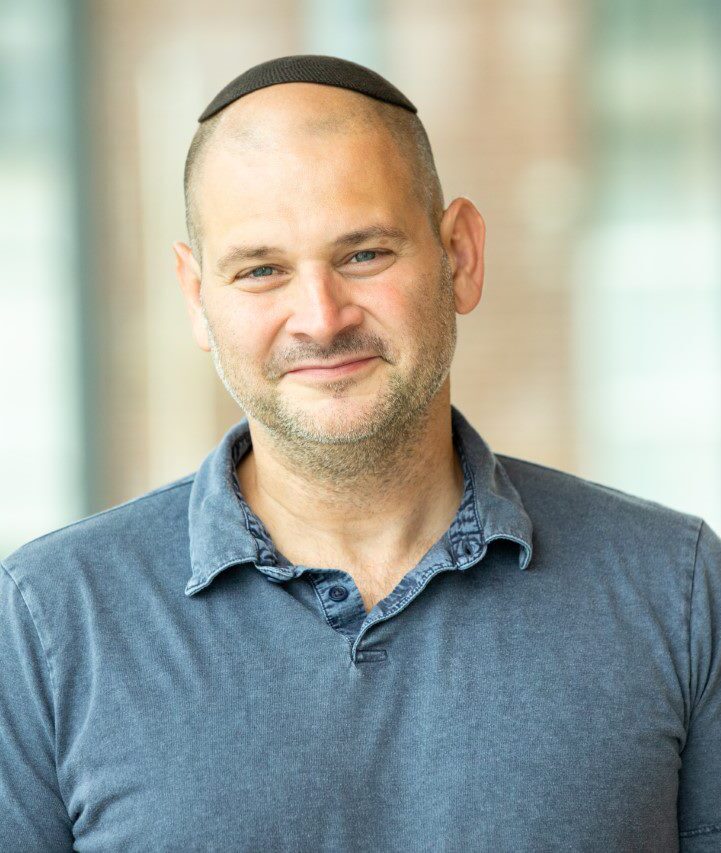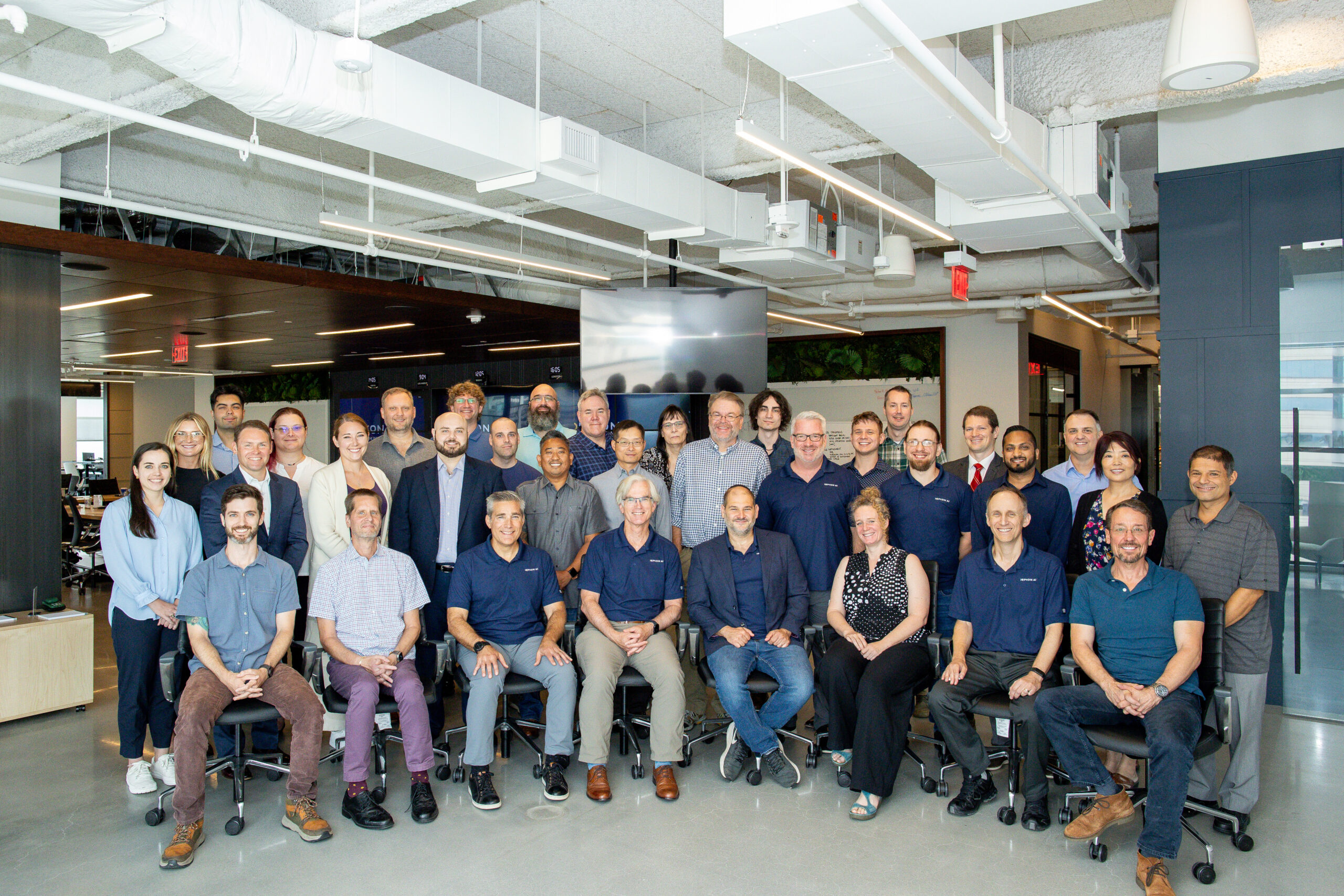Yisroel Brumer, PhD, spent more than 15 years working at the highest levels of federal government, including the US Department of Homeland Security and the US Department of Defense, where he served in a variety of executive leadership roles, eventually earning himself the Defense Distinguished Civilian Service Medal, the highest medal awarded by the DoD to civilians. But when the former Acting Director of DoD’s Cost Assessment and Program Evaluation (CAPE) joined Red Cell as a founding partner in 2020, Yisroel admits he found himself in a new world that required him to develop a new set of skills and adjust his mindset.
In this interview, Yisroel, the co-founder of two Red Cell companies — healthcare technology company Zephyr AI and defense tech startup DEFCON AI — discusses his transition from being an executive within the federal government to building businesses in the private sector, the challenges that come with starting companies from the ground up, and why he likens the process of starting a new business to that of a flying eagle.
In 2020, you went from running CAPE, where you reported directly to the Secretary of Defense, oversaw all major investment programs, and led Strategic Portfolio reviews, to becoming a founding partner at Red Cell. What was the transition from the public sector to the private sector like for you?
Yisroel: The transition was exciting, rewarding, and a lot of fun, but it was also extremely difficult. I quickly realized that success in the government world does not automatically breed success in the private sector. I had to learn new skills and open my mind up to entirely new things.
I tell people that being part of the government or a large corporation is like working on a 747. But a startup is more like being an eagle. If a 747 and an eagle are flying right next to each other and the pilot of the 747 decides to take a break, that person could simply hand the controls over to the co-pilot. The plane stays in the air, and everyone gets to where they need to be safely. But if the eagle wants to take a break and stops flapping its wings, it falls out of the sky and crashes. That’s to say, if you’re going to be successful in the startup world, you have to mentally be prepared to push, push, push all the time to get things off the ground and to be successful.
What ultimately helped you to adjust to your new career at Red Cell?
Yisroel: I benefited enormously from Grant Verstandig (Red Cell’s Founder, Chairman, and CEO), who spent an inordinate amount of time mentoring me about the startup world – usually between the hours of midnight and 6 a.m., which wasn’t great for my sleep, but was unbelievably helpful for my advancement.
How did your background help you navigate life as an entrepreneur?
Yisroel: I hold a doctorate in chemical physics and a master’s in chemistry so I have a very strong scientific background from my years in academia. That helped a lot because so much of what we do at Red Cell and our incubations is technology-based. In the beginning, when we were standing up Zephyr, my scientific background was extremely useful, especially when it came to evaluating the science, physics, biology, and chemistry initiatives.
Also, I think both my time in the government and my time in academia gave me this intellectual fearlessness. Difficult problems don’t scare me. If there’s a problem that seems impossible and that no one has ever solved before, it doesn’t mean the problem can’t be solved. It just means it hasn’t been solved. I firmly believe that if you get enough smart people together, work hard enough, get the right pieces in place, you can solve impossible problems.
What have you found rewarding about your time at Red Cell?
Yisroel: I mean, we are going after the hardest, most important problems that affect healthcare, cyber, and national security. There’s this no-fear aspect to what we’re doing. We’re going after the things that make people’s lives better; that make our nation more secure. These are not easy problems to solve, but we’re going after them anyway. That’s just the most rewarding feeling.
The first company you co-founded at Red Cell was Zephyr AI which, as an independent entity, recently raised more than $100 million in Series A funding. Describe what it was like to build Zephyr from the ground up?
Yisroel: I had the honor of co-founding Zephyr with Grant and Jeff Sherman, who’s an outstanding computer scientist and who knows artificial intelligence algorithms better than anyone on the planet. When we first set out to build Zephyr as Red Cell’s first incubation, we didn’t have the platform team like we have now. So, it required a lot of work and pain and stress. Everything would fall back on the three of us. But it was worth it seeing how far Zephyr has come.
It’s truly gratifying to see how Zephyr has gone from an idea to this high-growth health technology company that has not only attracted this incredible world-class team, but that’s also amassed one of the largest clinicogenomic datasets in the world, positioning it to significantly transform precision medicine in oncology and cardiometabolic disease and improve patient outcomes.
You’re now running DEFCON AI as its Co-Founder and CEO. How did the idea for DEFCON AI come about?
Yisroel: It really was an alignment of stars. Zephyr had broken new ground in terms of demonstrating the capabilities of artificial intelligence in the healthcare space and was garnering a lot of attention. At the same time, the Department of Defense was struggling to deploy AI at scale despite having a great deal of funds. So, eventually we were asked by senior Air Mobility Command leaders to help bring next-generation artificial intelligence algorithms to a critical mission area. They wanted to find solutions to train operational-level planners and create a decision-augmentation tool to respond to contested mobility challenges. We got really excited because we knew we had technical ideas that were not only feasible, but potentially game-changing. From there, we assembled our Dream Team, including retired General Paul Selva who joined us as a co-founder and Chief Strategy Officer, so we could stand up DEFCON AI as an insights company that’s building a next-generation modeling, simulation, and analysis toolset for the military. We’ve just taken off from there, closing contracts and delivering products that have been home runs for our company.
From natural disasters to emboldened near-peer competitors, there are lots of challenges that US military forces and even commercial institutions face in terms of contested mobility and disruption. How does DEFCON AI solve for that?
Yisroel: ‘Resilience in the Face of Disruption’ is our credo. And it is a great differentiator for us. Our algorithms are all built from the core to allow us to respond quickly to disruption. And we’ve added in functionalities that will mimic an intelligent adversary (e.g., hurricane or near-peer competitor), which allows you to then build resilience plans. Foundational to everything we do is the idea that it’s not enough to just build a high-quality, upfront plan. You’ve got to build something that a planner or an operator can say, ‘Hey, give me higher or lower levels of resilience.’ Then if something bad happens, you’re back operating in seconds or minutes, not days or weeks. We’ve been very successful at that. It is the core of why DoD has been really excited about working with us and funding us.
DEFCON AI has had several wins since its launch in 2022. What are some of the milestones you’re most proud of?
Yisroel: There are two process milestones that I think are really important, but the one that I’m really proud of is the outcome.
So, the first process milestone came when we were able to close contracts very quickly. In June 2022, we were awarded a Department of the Air Force Phase II Small Business Innovation Research, also known as SBIR, contract through AFWERX/Agility Prime to support the development of an operational-level logistics training software for AMC. Then three months later, we were awarded a DAF Phase III SBIR contract to accelerate the transition of our prototype to production code for the training software. The outcome milestone that I’m really proud of is our delivery of a prototype demo to AMC three months ahead of schedule and way above spec. That’s unprecedented in defense. It just doesn’t happen.
Another milestone came in 2023 when we deployed our modeling, simulation, and analysis tool ARTIV™ on GovCloud at Impact Level 5. That’s something we’re incredibly proud of because it allows DoD customers to carry out contested mobility planning, test operational logistics and transportation concepts, and train under real-world scenarios to predict and plan around disruptions.
What has been the secret to DEFCON AI’s success?
Yisroel: The secret to DEFCON AI’s success is that we’ve built a pretty remarkable feedback loop between the opportunity and the people. Simply put, we attract the world’s best minds, which enables us to develop incredible products that are attractive to DoD, which provides more opportunity, which attracts more world-class people. That’s the feedback loop and instantiating that feedback is very hard to do. But we’ve done just that. Our success is the result of a mix of enlightened leaders on the government side, incredible contracting expertise on our side, and super high-modal people who just push, push, push. We’re very proud that all components have come together to contribute to our achievements.
Also, we have this ability to marry operational expertise with software expertise with product expertise, the ability to bring cutting-edge algorithms together with a deep understanding of the operational environment and the ability to build products that people can simply use. That’s very rare.
How has Red Cell and its incubation process helped DEFCON AI to be successful?
Yisroel: The success of DEFCON is inextricable from Red Cell. The platform team has been critical to providing the foundation on which we’ve been able to build a successful company. For example, throughout the incubation process, we’ve been able to hire talent very quickly without having to go through all the machinations of standing up a Human Resources department because we have the support of the platform team. To me, the most important thing about Red Cell’s incubation process is that it makes building a company 1.) vastly easier, 2.) vastly more fun, and 3.) orders of magnitude more likely to succeed.
What’s the single most important lesson you’ve learned as an entrepreneur?
Yisroel: I would say pick your co-founders and leadership team wisely because building a business is like a marriage. It’s not just about competence. It’s about competence and mission-drive. It’s about relationships and people you can work with. It’s about creating a culture where everybody is pushing together as a team and not creating internal drama. If you pick co-founders and leadership teams you can’t work with, who aren’t mission-driven in the same way that you are, and who aren’t going to push as hard as you push, then your rate of success drops like a stone. You want people on your side who, when you hand them something, you know it’s going to be taken care of, or when they tell you something, you can trust them.
What’s next for DEFCON AI?
Yisroel: There is an opportunity to disrupt the United States military operations in a positive way with the integration of operational expertise and cutting-edge software. In the near term, that opportunity will extend across different facets of contested mobility. But in the longer term, there’s a great possibility for us to both expand mobility products and other products in the virtual world and stretch across the artificial intelligence and software engineering space in the Department of Defense. The future is very bright at DEFCON AI, and the opportunities for us are nearly unlimited.
“To me, the most important thing about Red Cell’s incubation process is that it makes building a company 1.) vastly easier, 2.) vastly more fun, and 3.) orders of magnitude more likely to succeed.”
Build With Us
Our formula for success begins with those who dare to look beyond what’s possible.
Get Started




